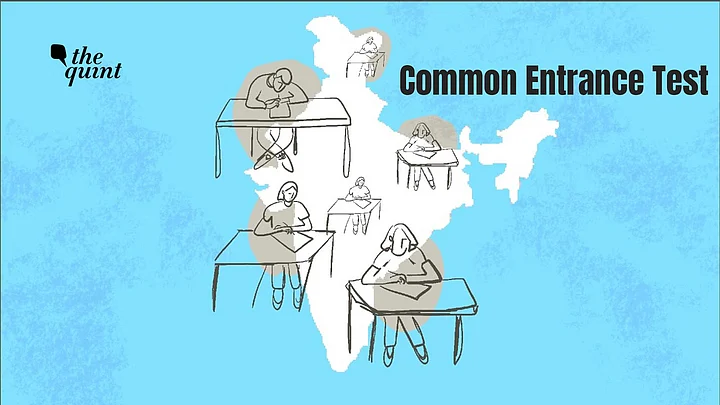"It is ridiculous to have a 100 percent cut-off for admission in many undergraduate programmes in some of the top universities," University Grants Commission (UGC) Chairperson M Jagadesh Kumar said on Tuesday, 22 March, a day after making Common University Entrance Test (CUET) mandatory for undergraduate admissions in central universities.
This essentially means that the system of admitting students into central universities – like the Delhi University (DU) – on the basis of board examination results alone will cease to exist from 2022-23.
"It is ridiculous to have a 100 per cent cut-off for admission in many undergraduate programs in some of the top universities. The common exam will provide a level-playing ground to all the students across the country."M Jagadesh Kumar to NDTV
A government official, speaking to The Indian Express, said that the UGC did not favour admission on the basis of board results due to ‘diversity’ in evaluation methods across boards.
“Some boards are more generous than others in marking and this gives their students an unfair advantage over others.”Government Official to The Indian Express
When Was 'Disparity' Noticed?
An investigation in 2017 first revealed that there was an "unusual spike" in the number of students who scored 95 in the Central Board of Secondary Education (CBSE) exams. This spike was witnessed since 2008, and experts called this "bunching of marks." This means that even if a student had scored 93, the marks may be bunched to 95, eventually increasing their cut-off.
The then Union Human Resource Development (HRD) Minister Prakash Javadekar had announced later in 2017 that 32 school education boards, including the CBSE and state boards, had taken a joint decision to stop the practice of unfairly increasing students’ marks in order to show higher-scoring results.
But it did not stop there.
The Quint's Investigation on Disparity
A series of investigative reports by The Quint in 2017, 2018, and 2019 has repeatedly demonstrated that the CBSE continued to unfairly and unequally tamper the Class 12 board marks of its students.
This meant that there was an absence of a level playing field even among the CBSE students. But further investigation by The Quint showed that there were starker differences among state boards if one compares marks of toppers from different boards.
In 2018, the Uttar Pradesh state board toppers scored 93.2 percent, an overall percentage not good enough to gain entry into the most top-ranked DU colleges.
In 2019, The Quint had reported that students who topped the Assam Higher Secondary Boards scored 478 out of 500, which translated to 95.6 percent. However, their scores made it impossible for them to get admission to an Economics course at DU’s Shri Ram College of Commerce (SRCC), as even the second lists had a cut-off as high as 98.25 percent.
But not all state boards feel the pinch: there are some state boards that are as high-scoring, or even more, than the CBSE and the Council for the Indian School Certificate Examinations (CISCE) – like Tamil Nadu and Kerala – which dominates the DU admissions, data shows.
Will CUET Create a Level Playing Field?
With the implementation of CUET across central universities, the UGC stresses that these disparities will reduce from the coming year.
But there is also another side: experts point out that those with privilege may get an advantage in cracking the tests.
"Depending on one’s socio-economic location, students access different institutions that are clearly hierarchical in nature – supporting the privileged student to continue to take advantage of their position and stalling the less privileged candidate’s chances of social mobility."Disha Nawani on The Quint
“The universities can enrol candidates for the reserved seats on the basis of CUET scores. It will not impact the existing admission and reservation policy that are in accordance with the ordinances of the varsity,” UGC Chairperson Kumar had told earlier.
The skyrocketing college cut-offs based on class 12 board marks, which have become synonymous with the start of every academic session, could become a thing of the past; but only if we do not see similar sky-high scores in the CUET as well.
